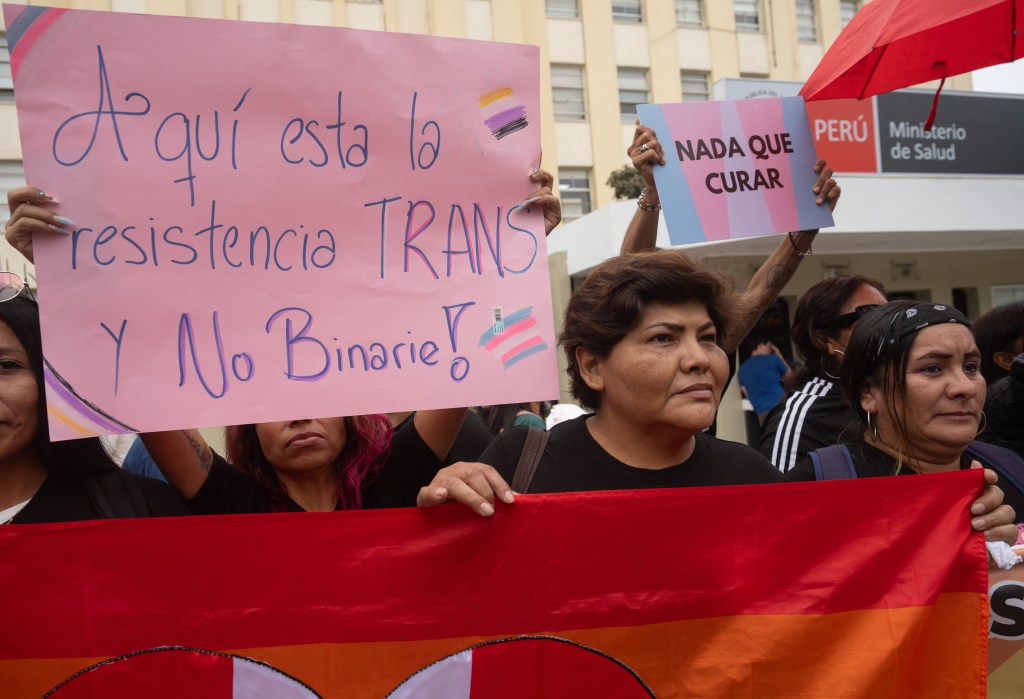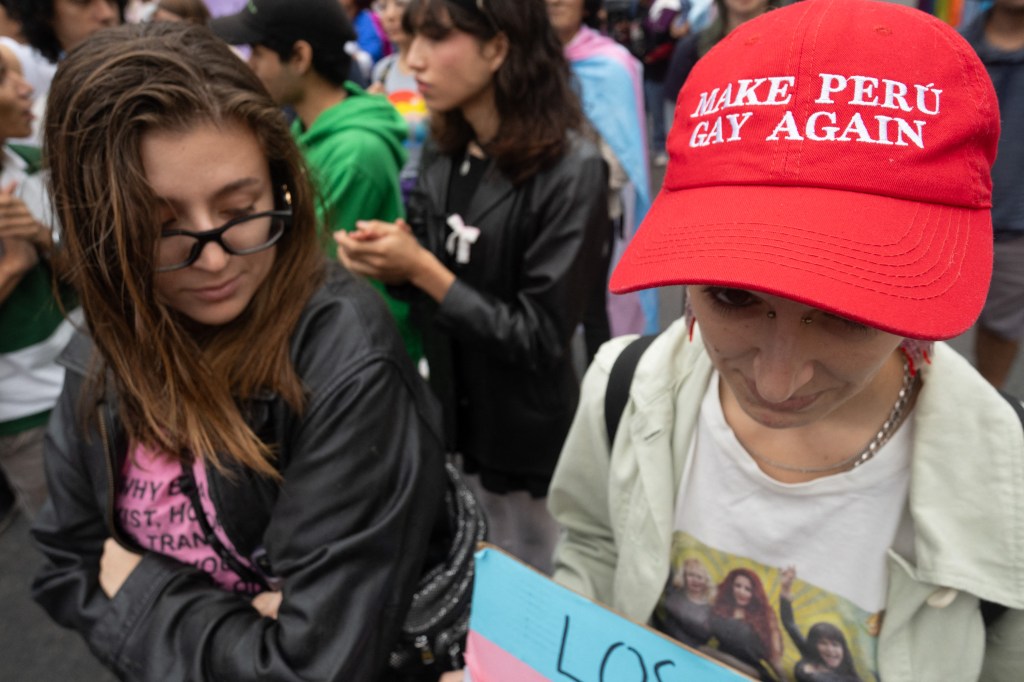Protests in Peru after trans people deemed ‘mentally ill’

The LGBTQ+ community and its allies protests in front of Peru’s health ministry on 17 May against a government decree listing ‘transsexualism’ as a ‘mental disorder’. (Cris Bouroncle/AFP/Getty)
The LGBTQ+ community and its allies protests in front of Peru's health ministry on 17 May against a government decree listing 'transsexualism' as a 'mental disorder'. (Cris Bouroncle/AFP/Getty)
Protests have broken out in Peru after trans, non-binary and intersex people were classified as mentally ill, following a decree from the government’s health ministry.
Sexual diversity activists planted themselves in front of the country’s health ministry on Friday (17 May), coinciding with the International Day Against Homophobia, Biphobia and Transphobia (IDAHOBIT), to demand the government repeal the decree.
Although homosexuality is legal in Peru, and some discrimination laws exist, the country still doesn’t recognise same-sex marriage.

The decree, signed by Peruvian president Dina Boluarte, defines “transsexualism” and “gender-identity disorder in children” as mental illnesses.
It casts “dual-role transvestitism,” “fetishistic transvestism,” and “other gender-identity disorders” in the same light.

The decree has provoked uproar, with Jheinser Pacaya, the director of OutfestPeru, previously posting on X/Twitter that the South American country’s transgender community will not rest until it is repealed.
Protestors also staged rallies outside the Peruvian embassy in Quito, the capital of neighbouring Ecuador.

During the protests, which also marked the International Day Against Homophobia, Biphobia and Transphobia (IDAHOBIT) – a day that traces its roots back to May 1990, when the World Health Organization declassified homosexuality as a mental disorder – people held placards stating their opposition to the legislation.
Others came together to lie on blankets of red, creating what looked like a sea of blood, while holding signs opposing the decree.

Last week, hundreds of people gathered in the capital, Lima, to protest. “Our lives are also valuable, your indolence is killing us,” one banner read.
In a statement last week, the health ministry said that, despite the decree, LGBTQ+ people should not be subjected to so-called conversion therapies and pointed to a 2021 resolution which protects against the practice.
An Ipsos poll last year found that 81 per cent of Peruvians believe transgender men and women face a “great deal” of discrimination in society.

